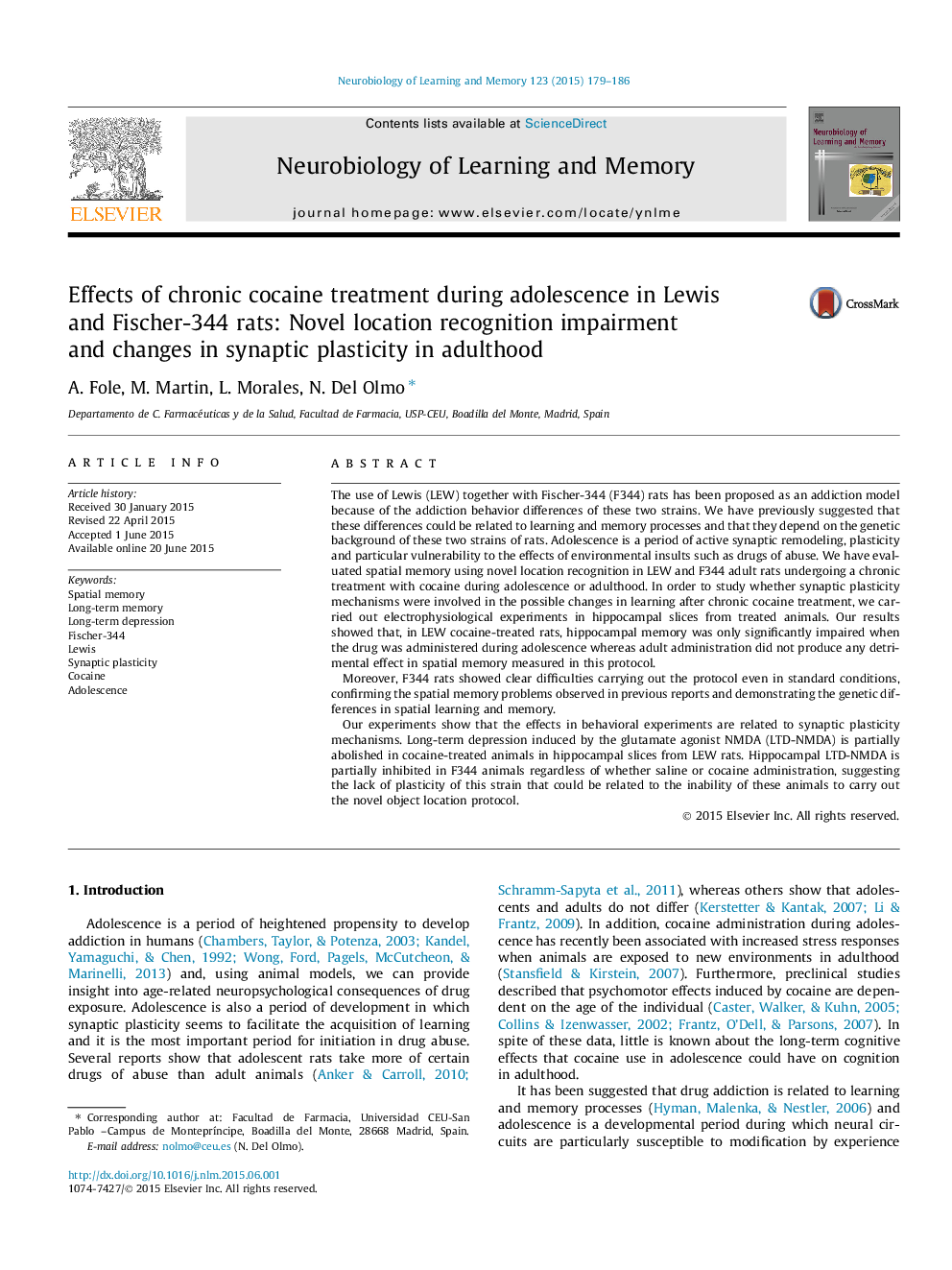| کد مقاله | کد نشریه | سال انتشار | مقاله انگلیسی | نسخه تمام متن |
|---|---|---|---|---|
| 936459 | 1475152 | 2015 | 8 صفحه PDF | دانلود رایگان |
• Cocaine intake during adolescence induces deficits in spatial memory in adult age.
• Memory impairment induced by cocaine could be related with plasticity changes and NMDA receptors.
• Drug addiction vulnerability could be related to differences in synaptic plasticity and memory.
The use of Lewis (LEW) together with Fischer-344 (F344) rats has been proposed as an addiction model because of the addiction behavior differences of these two strains. We have previously suggested that these differences could be related to learning and memory processes and that they depend on the genetic background of these two strains of rats. Adolescence is a period of active synaptic remodeling, plasticity and particular vulnerability to the effects of environmental insults such as drugs of abuse. We have evaluated spatial memory using novel location recognition in LEW and F344 adult rats undergoing a chronic treatment with cocaine during adolescence or adulthood. In order to study whether synaptic plasticity mechanisms were involved in the possible changes in learning after chronic cocaine treatment, we carried out electrophysiological experiments in hippocampal slices from treated animals. Our results showed that, in LEW cocaine-treated rats, hippocampal memory was only significantly impaired when the drug was administered during adolescence whereas adult administration did not produce any detrimental effect in spatial memory measured in this protocol.Moreover, F344 rats showed clear difficulties carrying out the protocol even in standard conditions, confirming the spatial memory problems observed in previous reports and demonstrating the genetic differences in spatial learning and memory.Our experiments show that the effects in behavioral experiments are related to synaptic plasticity mechanisms. Long-term depression induced by the glutamate agonist NMDA (LTD-NMDA) is partially abolished in cocaine-treated animals in hippocampal slices from LEW rats. Hippocampal LTD-NMDA is partially inhibited in F344 animals regardless of whether saline or cocaine administration, suggesting the lack of plasticity of this strain that could be related to the inability of these animals to carry out the novel object location protocol.
Journal: Neurobiology of Learning and Memory - Volume 123, September 2015, Pages 179–186
